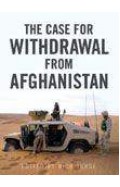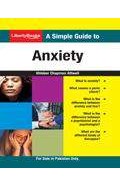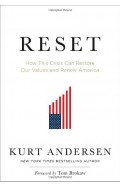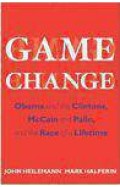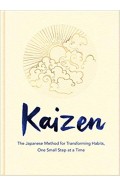Free Speech Ten Principles for a Conned World -
By: Timothy Garton Ash
-
Rs 2,252.50
- Rs 2,650.00
- 15%
You save Rs 397.50.
Due to constant currency fluctuation, prices are subject to change with or without notice.
Never in human history was there such a chance for freedom of expression. If we have Internet access, any one of us can publish almost anything we like and potentially reach an audience of millions. Never was there a time when the evils of unlimited speech flowed so easily across frontiers: violent intimidation, gross violations of privacy, tidal waves of abuse. A pastor burns a Koran in Florida and UN officials die in Afghanistan.
Drawing on a lifetime of writing about dictatorships and dissidents, Timothy Garton Ash argues that in this connected world that he calls cosmopolis, the way to combine freedom and diversity is to have more but also better free speech. Across all cultural divides we must strive to agree on how we disagree. He draws on a thirteen-language global online project - freespeechdebate.com - conducted out of Oxford University and devoted to doing just that.
With vivid examples, from his personal experience of China's Orwellian censorship apparatus to the controversy around Charlie Hebdo to a very English court case involving food writer Nigella Lawson, he proposes a framework for civilized conflict in a world where we are all becoming neighbours.
| Book | |
| What's in the Box? | 1 x Free Speech Ten Principles for a Conned World - |
Never in human history was there such a chance for freedom of expression. If we have Internet access, any one of us can publish almost anything we like and potentially reach an audience of millions. Never was there a time when the evils of unlimited speech flowed so easily across frontiers: violent intimidation, gross violations of privacy, tidal waves of abuse. A pastor burns a Koran in Florida and UN officials die in Afghanistan.
Drawing on a lifetime of writing about dictatorships and dissidents, Timothy Garton Ash argues that in this connected world that he calls cosmopolis, the way to combine freedom and diversity is to have more but also better free speech. Across all cultural divides we must strive to agree on how we disagree. He draws on a thirteen-language global online project - freespeechdebate.com - conducted out of Oxford University and devoted to doing just that.
With vivid examples, from his personal experience of China's Orwellian censorship apparatus to the controversy around Charlie Hebdo to a very English court case involving food writer Nigella Lawson, he proposes a framework for civilized conflict in a world where we are all becoming neighbours.
Free Speech Ten Principles for a Conned World -
By: Timothy Garton Ash
Rs 2,252.50 Rs 2,650.00 Ex Tax :Rs 2,252.50
Zubin Mehta: A Musical Journey (An Authorized Biography)
By: VOID - Bakhtiar K. Dadabhoy
Rs 892.50 Rs 1,050.00 Ex Tax :Rs 892.50
Myths Illusions and Peace: Finding a New Direction for America in the Middle East
By: Dennis Ross
Rs 766.50 Rs 1,095.00 Ex Tax :Rs 766.50
Reset: How This Crisis Can Restore Our Values and Renew America
By: Kurt Andersen
Rs 450.00 Rs 500.00 Ex Tax :Rs 450.00
How To Win A Cosmic War God Globalization And The End Of War
By: Reza Aslan
Rs 625.50 Rs 695.00 Ex Tax :Rs 625.50
Game Change Obama And The Clintons McCain And Palin And The Race Of A Lifetime
By: John Heilemann
Rs 715.50 Rs 795.00 Ex Tax :Rs 715.50
Londonistan: How Britain is Creating a Terror State Within
By: Melanie Phillips
Rs 170.00 Rs 200.00 Ex Tax :Rs 170.00
No similar books from this author available at the moment.
Pride and Prejudice (Macmillan Collector's Library)
By: Jane Austen
Rs 2,515.50 Rs 2,795.00 Ex Tax :Rs 2,515.50
Kaizen: The Japanese Method for Transforming Habits, One Small Step at a Time
By: Sarah Harvey
Rs 3,415.50 Rs 3,795.00 Ex Tax :Rs 3,415.50
Zubin Mehta: A Musical Journey (An Authorized Biography)
By: VOID - Bakhtiar K. Dadabhoy
Rs 892.50 Rs 1,050.00 Ex Tax :Rs 892.50
Free Speech Ten Principles for a Conned World -
By: Timothy Garton Ash
Rs 2,252.50 Rs 2,650.00 Ex Tax :Rs 2,252.50












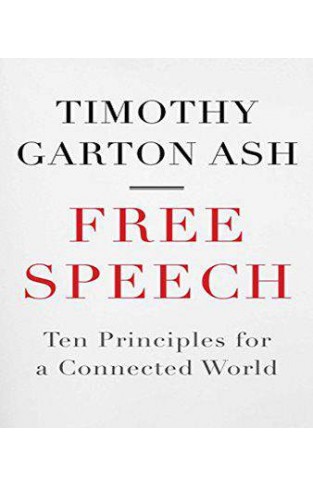
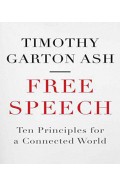
-120x187.jpg?q6)







